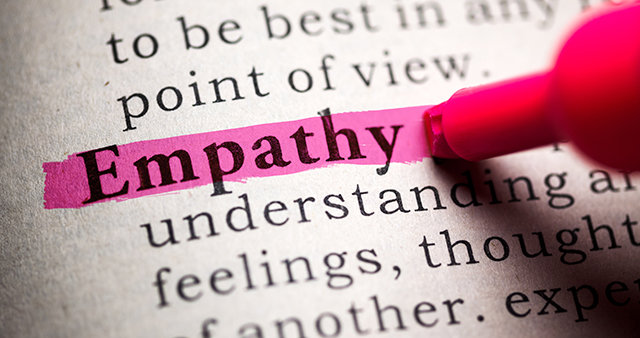Yes, empathy can be dysfunctional IF we do not fully understand the emotion AND if we do not distinguish between Emotional Empathy and Cognitive Empathy. This is a classic case of “I don’t give a hoot for simplicity this side of complexity, yet I yearn to come to know the simplicity the far side of complexity.”
The first thing to understand about empathy is that it is a feeling and like all emotions subject to bias both conscious and unconscious. Study after study show that we have a strong empathy bias toward those most like ourselves, those we most identify with AND whose concerns and needs are most visible or dramatic. All well and good, we should take care of family and friends and countrymen BUT is it the best approach when trying to make the world a better place, when rationally attempting to allocate scarce resources to achieve the maximum amount of good? We rally immense resources to save the child that has fallen down the well next door while paying only lip service to millions of refugee children the other side of the world.
In Against Empathy, Yale researcher Paul Bloom argues that “far from helping us to improve the lives of others, empathy is a capricious and irrational emotion that appeals to our narrow prejudices, muddles our judgment, and is a leading motivator of inequality and immorality in society…. Far from helping us to improve the lives of others, empathy often gets hijacked by individual political persuasions, and its ‘spotlight’ focus can bypass rational thought, ignoring important context.” i.e. Emotional Empathy. Instead, Bloom argues for a morality based on “self-control”, “intelligence”, and “rational compassion” i.e. Cognitive Empathy.
Against Empathy is best read as an argument for the use of critical thinking skills in understanding our empathetic emotions and thus for a disciplined, effective response to the world’s problems.
As always, I share what I most want/need to learn. – Nathan S. Collier



0 Comments